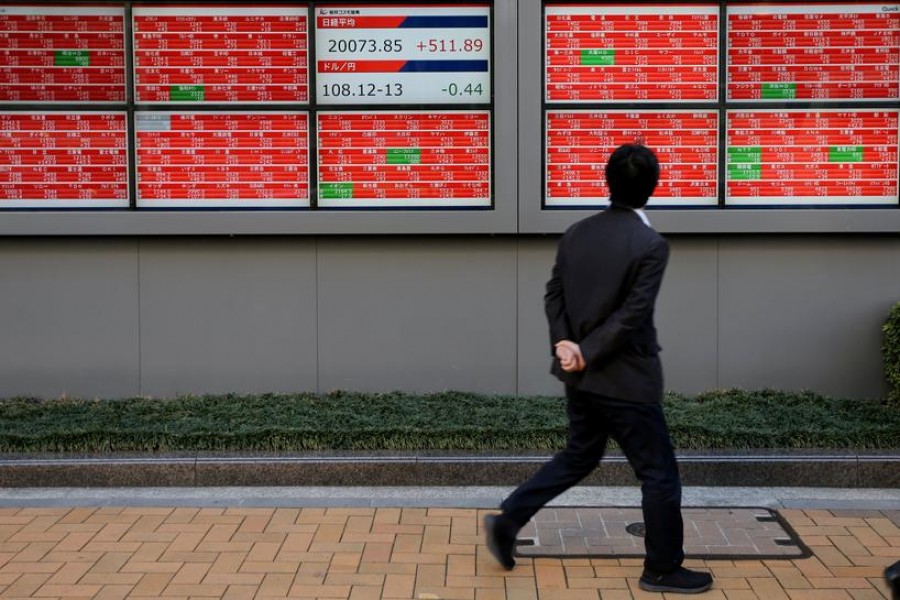Share markets in Asia got off to a steady start on Monday as investors tried to catch their breath following another week of escalating trade tensions between the United States and China.
In early trade, MSCI’s broadest index of Asia-Pacific shares outside Japan tacked on 0.6 per cent after a steep 3.0 per cent loss the previous week. US S&P 500 e-mini futures also turned higher, rising 0.5 per cent following losses on Wall Street on Friday.
The Dow Jones Industrial Average fell 0.38 per cent, the S&P 500 lost 0.58 per cent and the Nasdaq Composite dropped 1.04 per cent.
Australian shares jumped 1.4 per cent after the centre-right Liberal National Coalition pulled off a shock win in federal elections, beating the left-wing Labor Party.
Japan’s Nikkei stock index added 0.4 per cent, after data showed growth in the world’s third-biggest economy unexpectedly accelerated in the first quarter.
The modest gains on Monday came even as financial markets remained on edge over the intensifying Sino-US trade war, with the Trump administration last week adding Huawei Technologies Co Ltd to a trade blacklist.
The repercussions of that move were evident as Alphabet Inc’s Google suspended business with Huawei that requires the transfer of hardware, software and technical services except those publicly available via open source licensing.
Google’s suspension of business with Huawei “signals that even though the trade talks are being characterized as being stalled, when we factor in China saying there is no point (in) U.S. negotiators coming to Beijing in current circumstances as they did Friday, then the chance of a G20 deal seem more remote,” Greg McKenna, strategist at McKenna Macro said in a note to clients.
Noting the festering trade war, continued uncertainty over Brexit and rising tensions between the United States and Iran, McKenna said investors are currently “headline trading.”
“(It’s) too soon to see the economic consequences of the battle escalating. And so belief can be suspended until that time,” he said.
Oil markets, however, saw some active trade early on after Saudi Arabia’s energy minister said on Sunday that there was consensus among the members of the Organization of the Petroleum Exporting Countries to maintain production cuts to “gently” reduce inventories.
Both US crude and Brent crude jumped more than 1.0 per cent following the minister’s comments, with West Texas Intermediate fetching $63.51 a barrel and Brent crude at $73.05 per barrel.
In currency markets, China’s offshore yuan rebounded after touching its weakest level against the dollar since November on Friday. It was last trading at 6.9280 per dollar, according to Reuters news agency.
In onshore trading on Friday, the yuan weakened past the psychologically important 6.9 per dollar level to end at its softest level in 19 weeks. However, sources say the country’s central bank is expected to use foreign exchange intervention and monetary policy tools to stop it weakening past the 7-per-dollar level in the near term.
On Monday, the dollar added 0.2 per cent against the yen to 110.30, and the euro was up 0.1 per cent at $1.1165.
The dollar index, which tracks the greenback against a basket of six major rivals, was down a touch at 97.980.
The yield on benchmark 10-year Treasury notes rose to 2.4068 per cent compared with a US close of 2.393 per cent on Friday, while the two-year yield touched 2.2187 per cent, up from Friday’s US close of 2.202 per cent.
Spot gold was 0.1 per cent higher at $1,278.42 per ounce.


